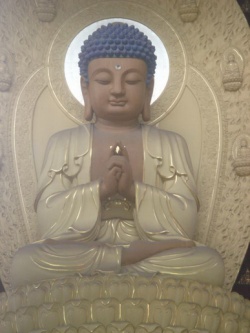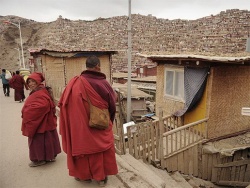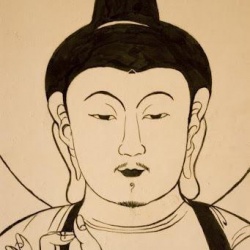Silakkhandha Vagga
The Digha Nikaya ("Collection of Long Discourses") is the first of the five nikayas (collections) in the Sutta Pitaka.
Some of the most commonly referenced suttas from the Digha Nikaya include the Maha-parinibbana Sutta (DN 16), which described the final days and death of the Buddha,
the Sigalovada Sutta (DN 31) in which the Buddha discusses ethics and practices for lay followers, and the Samaññaphala (DN 2), Brahmajala Sutta (DN 1) which describes and compares the point-of-view of Buddha and other ascetics in India about the universe and
time (past, present, and future); and Potthapada Sutta (DN 9), which describe the benefits and practice of samatha meditation (calm meditation).
The Digha Nikaya consists of 34 discourses, broken into three vaggas (groups):
The Division Concerning Morality (13 suttas)
Brahmajala Sutta (1) "The Great Net" or the universal net(of the world), in which are caught all beings like fish & the 62 heretical forms of speculation concerning the world and the self taught by other teachers of the time.
Samannaphala Sutta (2) "The Fruits of the Hermit Life". The Buddha explains to King Ajatasattu the advantages of joining the Buddhist Order and renouncing the life of the world.
Ambattha Sutta (3) Pride of birth and its fall. A dialogue with Ambattha on caste. Contains reference to the legend of King Okkaka, the traditional founder of the Sakya clan.
Sonadanda Sutta (4) Dialogue with the Brahmin Sonadanda on the characteristics of the true brahmin.
Kutadanta Sutta (5) Dialogue with the Brahmin Kutadanta condemning animal sacrifice.
Mahali Sutta (6) Dialogue with Mahali on deva like vision and hearing and the attainment of full enlightenment.
Jaliya Sutta (7) On the nature of the life principle as compared with the body.
Kassapasihanada Sutta (8) A dialogue with the naked ascetic Kassapa against self-mortification.
Potthapada Sutta (9) A discussion with Potthapada on the nature of the soul, in which the Buddha states the question to be irrelevant and not conducive to enlightenment.
Subha Sutta (Digna Nikaya) (10) A discourse, attributed to Ananda, on conduct, concentration and wisdom.
Kevaddha Sutta (11) The Buddha refuses to allow a bhikkhu to perform a miracle. Story of the monk who visited the devas (deities) to question them.
Lohicca Sutta (12) Dialogue with the Brahmin Lohicca on the ethics of teaching.
Tevijja Sutta (13) On the futility of a knowledge of the Vedas as means to attaining companionship with Brahma.


